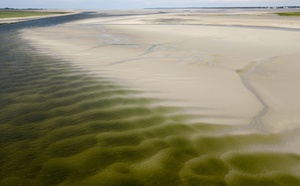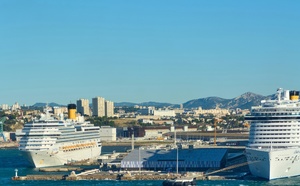First, make sure you get the relevant entry permit for your trip. EU citizens can move freely within EU territory, including Austria. If you’re a third-country national, you may be able to visit Austria on vacation without a visa for up to 90 days. Check the visa requirements for your nationality. All non-EU citizens do, however, need a visa to work in Austria.
With that arranged, you can start planning a more environmentally friendly trip to Austria using this guide.
How you travel
How you travel to Austria is key to planning an eco-friendly vacation. Travel by train to limit your carbon footprint—train travel is the least harmful mode of long-distance travel compared to cars and planes.
Fortunately, it’s easy to reach Austria by train from other European countries. There are daily trains from Paris to Vienna taking just over 10 hours. There are also trains to Austria from German cities including Munich and Frankfurt or Rome in Italy.
Flying is one of the least eco-friendly ways to travel long distances, but sometimes there isn't another option. If you have to fly, make sure you offset your carbon footprint. Offsetting means paying money so that a company will invest in environmentally friendly projects that reduce greenhouse gas emissions in exchange for your contribution. This helps mitigate some of the environmental damage caused by flying; however, it doesn't completely eliminate it.
Fortunately, it’s easy to reach Austria by train from other European countries. There are daily trains from Paris to Vienna taking just over 10 hours. There are also trains to Austria from German cities including Munich and Frankfurt or Rome in Italy.
Flying is one of the least eco-friendly ways to travel long distances, but sometimes there isn't another option. If you have to fly, make sure you offset your carbon footprint. Offsetting means paying money so that a company will invest in environmentally friendly projects that reduce greenhouse gas emissions in exchange for your contribution. This helps mitigate some of the environmental damage caused by flying; however, it doesn't completely eliminate it.
Where you stay
Where you stay is another key consideration when planning an environmentally responsible trip. Luckily, in Austria, you’re spoilt for choice when it comes to green accommodation. From family-run hotels that prioritize sustainability to eco-friendly mountain lodges.
Of course, your lodging will depend on where you are visiting and the activities you plan. Eco-friendly features to look out for when booking your accommodation include:
● Energy-saving systems such as solar panels
● Sustainable, locally sourced food, building, and decorative materials
● Water-saving systems like low-flow toilets
By choosing accommodation that has a minimal effect on the natural surroundings and supports the local community, you can enjoy a greener travel experience.
Of course, your lodging will depend on where you are visiting and the activities you plan. Eco-friendly features to look out for when booking your accommodation include:
● Energy-saving systems such as solar panels
● Sustainable, locally sourced food, building, and decorative materials
● Water-saving systems like low-flow toilets
By choosing accommodation that has a minimal effect on the natural surroundings and supports the local community, you can enjoy a greener travel experience.
How you pack
Perhaps it's something you hadn’t considered, but how much you pack also influences the effect your trip has on the environment. Plan ahead and pack light. Packing light can be a challenge, but by planning ahead and taking only what you really need you can save time, and money, and reduce your carbon footprint.
Essentials for a trip to Austria depend on where you are visiting and what activities you’ll be doing. Nevertheless, stick to staple items that are easy to combine, and comfortable footwear.
Don’t leave out your reusable water bottle and coffee cup to avoid getting disposable ones during your trip. It’s also a good idea to take reusable food containers.
Essentials for a trip to Austria depend on where you are visiting and what activities you’ll be doing. Nevertheless, stick to staple items that are easy to combine, and comfortable footwear.
Don’t leave out your reusable water bottle and coffee cup to avoid getting disposable ones during your trip. It’s also a good idea to take reusable food containers.
Where you eat
Use local products and services whenever possible during your stay. As well as staying at locally run hotels and guest houses, there are lots of other ways to support the local community and minimize your environmental impact as a tourist.
Choose to eat at local restaurants, particularly those that make use of local produce. Locally sourced produce doesn’t have to travel as far to get to the consumer, reducing greenhouse emissions. Luckily, in Austria, locally produced food includes a wide range of vegetables, cheeses, and fish sourced from lakes and rivers.
A good option is to find an expert local tour guide. As well as showing you the best of your Austrian destination, they can also suggest local eateries and stores.
Choose to eat at local restaurants, particularly those that make use of local produce. Locally sourced produce doesn’t have to travel as far to get to the consumer, reducing greenhouse emissions. Luckily, in Austria, locally produced food includes a wide range of vegetables, cheeses, and fish sourced from lakes and rivers.
A good option is to find an expert local tour guide. As well as showing you the best of your Austrian destination, they can also suggest local eateries and stores.
How you get around
Make environmentally friendly choices when it comes to getting around Austrian cities or traveling from one destination to another. Vienna is a great city for cycling, with over 1,660 km of cycle routes and several places to hire a bike and helmet.
If it’s too far to cycle or walk, your next best option is public transport. Buses and trams are the main forms of public transportation, Vienna also has a metro system. Local transport services are well-developed and efficient. You can buy weekly and monthly tickets online to get organized.
If it’s too far to cycle or walk, your next best option is public transport. Buses and trams are the main forms of public transportation, Vienna also has a metro system. Local transport services are well-developed and efficient. You can buy weekly and monthly tickets online to get organized.
What activities you do
Choose activities that have a minimal environmental impact. If you do want to participate in sporting activities such as skiing in Austria, do some research and select the greenest options possible.
Walking and hiking in nature can be good options. Consider walking and cycling tours or plan your own routes, always respecting the natural surroundings. Austria boasts some incredible hiking destinations including the Wilder Kaiser region, the Zillertal Alps, and Eagle Walk in Tirol.
Walking and hiking in nature can be good options. Consider walking and cycling tours or plan your own routes, always respecting the natural surroundings. Austria boasts some incredible hiking destinations including the Wilder Kaiser region, the Zillertal Alps, and Eagle Walk in Tirol.
Enjoy your vacation
In the end, traveling responsibly is not about sacrifice or giving something up. It's about creating a more sustainable way of living. We all need vacations, but we also need to be conscious of how much travel impacts our environment. By planning ahead, packing light, and choosing eco-friendly accommodation and activities, you can enjoy a more environmentally friendly trip to Austria.






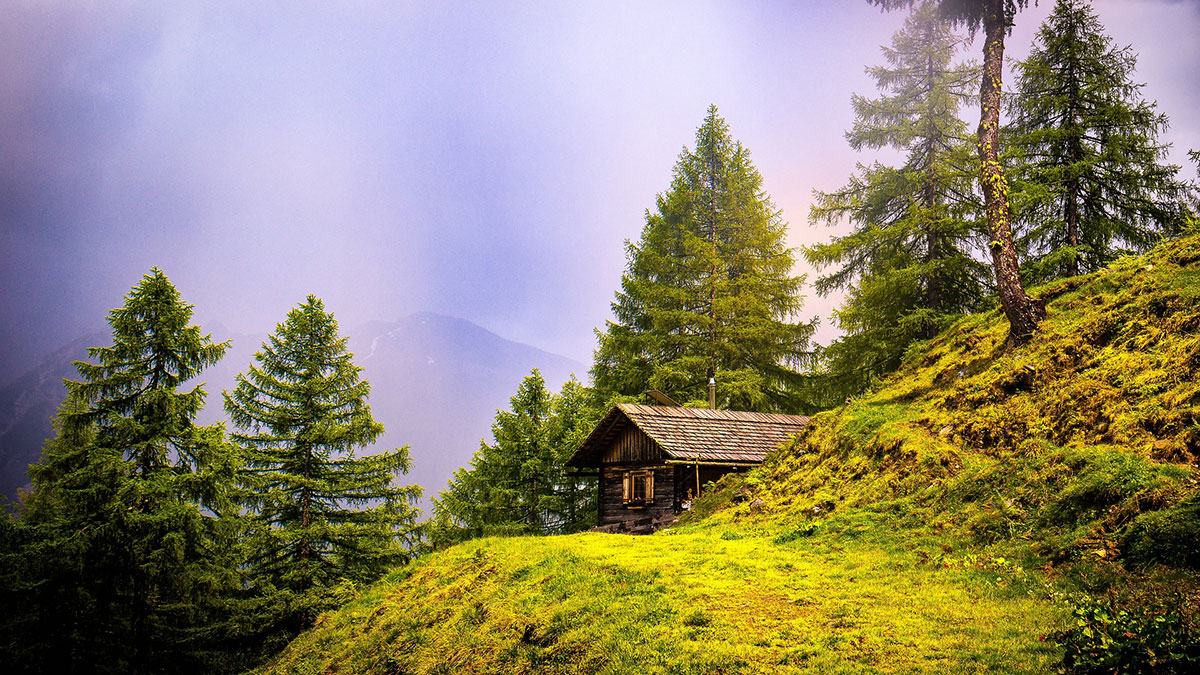
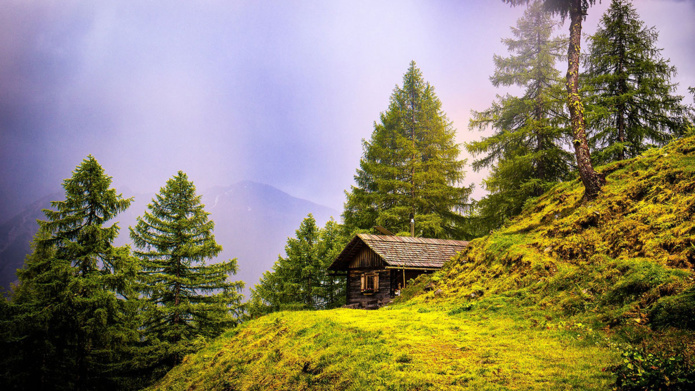









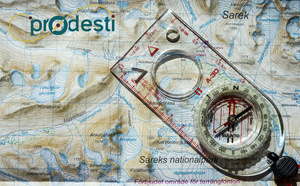





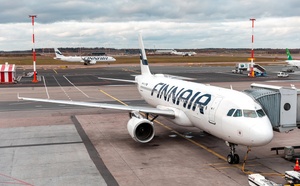




![Inflation, nouvelles pratiques : la restauration, un avenir mitigé ? [ABO] Inflation, nouvelles pratiques : la restauration, un avenir mitigé ? [ABO]](https://www.tourmag.com/photo/art/large_16_9/87792536-62226493.jpg?v=1744202496)
